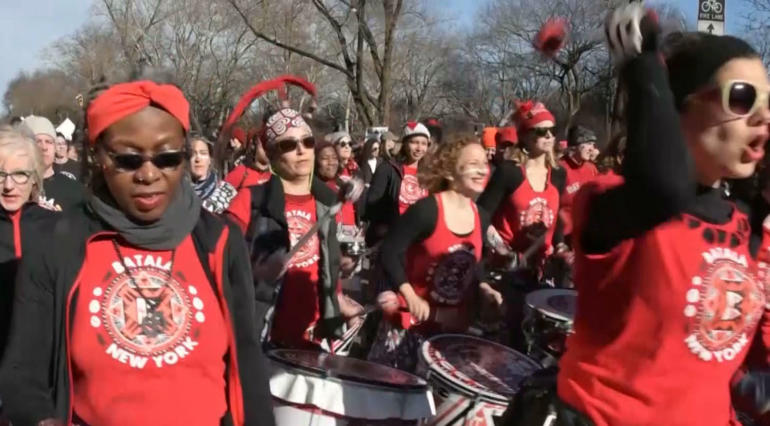Women in many countries are finding it easier to go to school, get top-level jobs and hold elected offices. However, the United Nations says it’s still a long way from having equal access.
CGTN U.N. correspondent Liling Tan looks at some of the progress – and problems – women have encountered during the past year.
Let’s start with the good news.
Women in Saudi Arabia are now allowed to drive. In government, women now outnumber men in Spain’s cabinet. And in Rwanda and Bolivia, women have parliamentary majorities.
The World Bank shows that over the past 23 years, the proportion of women in parliament has risen steadily to over 23 percent. However, it’s important to consider women make up half the world’s population.
“It’s pretty upsetting that in the year of 2018, only a fifth of all parliamentarians in the world are women,” Asa Regner, Deputy Executive Director of U.N. Women said.
However, there’s another upside: the U.N. says globally, more women are joining the work force and more girls are going to school. But still, it’s important to take a closer look.
“Women have a weaker position in the labor market, they earn less, and they are over-represented in temporary jobs and lower positions,” Regner said. “We also know that women and girls are a majority of poor people in the world still. We know issues such as child marriage are still not solved, and we see set-backs when it comes to sexual reproductive health and rights.”
Even so, a game-changer for women’s rights has been in play. The past year saw the #METOO movement galvanizing women to speak up about sexual abuse and harassment, and call out their alleged abusers.
It has ended careers in America and inspired similar campaigns in Europe. Even so, the movement resonated differently in different cultures, says lawyer Erika Collins, who specializes in international and cross-border workplace issues.
Take Japan, for example.
“It’s a culture that really values saving face, and so for many years it was very difficult for women to come forward with complaints about sexual harassment, ” Collins said. “There are laws against discrimination. There are laws against sexual harassment. But I think even three years ago, less than four-percent of rapes or assaults were even reported in Japan.”
In India, the movement cast a spotlight on a history of widely reported sexual violence, and laws enacted in their wake to stop sexual harassment in the workplace.
“So you know they’re really focused in this area, but India is a country of a billion people,” Collins said. “So if you’re in one of those cities the issues are a little bit easier to deal with, but when you’re in the rural areas the violence against women is still quite extreme.”
For some women, gender equality is about equal opportunities and equal pay. For others, it’s a matter of life and death.
It appears that whether it’s a professional trying to break the glass ceiling, a woman trying to break a cycle of violence, or a village girl trying to break free from deep-rooted cultural gender bias, the U.N. says their wishes are fundamentally the same; to determine their own lives and protect their own bodies.
Ruth Wedgwood on women’s progress around the world
CGTN’s Elaine Reyes spoke to Ruth Wedgwood about her assessment of the global progress women have made, and the effect of the Me Too Movement. Wedgwood is a professor of International Law and Diplomacy at Johns Hopkins University. She’s also served as a U.S. delegate to the U.N. Human Rights Committee, and as a law clerk to former Supreme Court Justice Harry Blackmun.
 CGTN America
CGTN America

